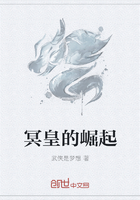A TALK WITH A FEW FRIENDS AT MENTONE.
"Fear not: for I have redeemed thee."--Isaiah xliii. 1. I WAS lamenting this morning my unfitness for my work, and especially for the warfare to which I am called. A sense of heaviness came over me, but relief came very speedily, for which I thank the Lord. Indeed, I was greatly burdened, but the Lord succoured me. The first verse read at the Sabbath morning service exactly met my case. It is in Isaiah xliii. 1: "But now thus saith the Lord that created thee, O Jacob, and He that formed thee, O
Israel, Fear not." I said to myself, "I am what God created me, and I am what He formed me, and therefore I must, after all, be the right man for the place wherein He has put me." We may not blame our Creator, nor suspect that He has missed His mark in forming an instrument for His work. Thus new comfort comes to us.
Not only do the operations of grace in the spiritual world yield us consolation, but we are even comforted by what the Lord has done in creation. We are told to cease from our fears; and we do so, since we perceive that it is the Lord that made us, and not we ourselves, and He will justify His own creating skill by accomplishing through us the purposes of His love. Pray, I beseech you, for me, the weakest of my Lord's servants, that I may be equal to the overwhelming task imposed upon me.
The next sentence of the chapter is usually most comforting to my soul, although on this one occasion the first sentence was a specially reviving cordial to me. The verse goes on to say,--"Fear not: for I have redeemed thee."
Let us think for a few minutes of the wonderful depth of consolation which lies in this fact. We have been redeemed by the Lord Himself, and this is a grand reason why we should never again be subject to fear. Oh, that the logic of this fact could be turned into practice, so that we henceforth rejoiced, or at least felt the peace of God!
These words may be spoken, first of all, of those frequent occasions in which the Lord has redeemed His people out of _trouble_. Many a time and oft might our Lord say to each one of us, "I have redeemed thee." Out of six, yea, six thousand trials He has brought us forth by the right hand of His power. He has released us from our afflictions, and brought us forth into a wealthy place. In the remembrance of all these redemptions the Lord seems to say to us, "What I have done before, I will do again. I have redeemed thee, and I will still redeem thee. I have brought thee from under the hand of the oppressor; I have delivered thee from the tongue of the slanderer; I have borne thee up under the load of poverty, and sustained thee under the pains of sickness; and I am able still to do the same: wherefore, then, dost thou fear? Why shouldst thou be afraid, since already I have again and again redeemed thee? Take heart, and be confident; for even to old age and to death itself I will continue to be thy strong Redeemer."
I suppose there would be a reference here to the great redemption out of Egypt. This word is addressed to the people of God under captivity in Babylon, and we know that the Lord referred to the Egyptian redemption; for He says in the third verse, "I gave Egypt for thy ransom." Egypt was a great country, and a rich country, for we read of "all the treasures of Egypt", but God gave them for His chosen: He would give all the nations of the earth for His Israel. This was a wonderful stay to the people of God: they constantly referred to Egypt and the Red Sea, and made their national song out of it. In all Israel's times of disaster, and calamity, and trial, they joyfully remembered that the Lord had redeemed them when they were a company of slaves, helpless and hopeless, under a tyrant who cast their firstborn children into the Nile, a tyrant whose power was so tremendous that all the armies of the world could not have wrought their deliverance from his iron hand. The very nod of Pharaoh seemed to the inhabitants of Egypt to be omnipotent; he was a builder of pyramids, a master of all the sciences of peace and the arts of war. What could the Israelites have done against him? Jehovah came to their relief in their dire extremity. His plagues followed each other in quick succession. The dread volleys of the Lord's artillery confounded His foes. At last He smote all the firstborn of Egypt, the chief of all their strength. Then was Egypt glad that Israel departed, and the Lord brought forth His people with silver and gold. All the chivalry of Egypt was overthrown and destroyed at the Red Sea, and the timbrels of the daughters of Israel sounded joyously upon its shores. This redemption out of Egypt is so remarkable that it is remembered even in heaven. The Old Testament song is woven into that of the New Covenant; for there they "sing the song of Moses the servant of God, and the song of the Lamb." The first redeemption was so wonderful a type and prophecy of the other that it is no alloy to the golden hymn of eternal glory, but readily melts into the same celestial chant. Other types may cease to be remembered, but this was so much a fact as well as a type that it shall be had in memory for ever and ever. Every Israelite ought to have had confidence in God after what He had done for the people in redeeming them out of Egypt. To every one of the seed of Jacob it was a grand argument to enforce the precept, "Fear not."
But I take it that the chief reference of these words are to that redemption which has been wrought out for us by Him who loved us, and washed us from our sins by His own blood. Let us think of it for a minute or two before we break the bread and drink of the cup of communion.
The remembrance of this transcendent redemption ought to comfort us in all times of _perplexity_. When we cannot see our way, or cannot make out what to do, we need not be at all troubled concerning it; for the Lord Jehovah can see a way out of every intricacy. There never was a problem so hard to solve as that which is answered in redemption. Herein was the tremendous difficulty--How can God be just, and yet the Saviour of sinners?














